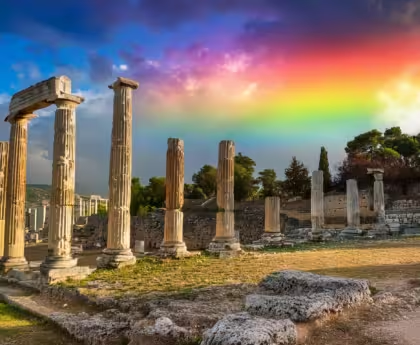Revolutionary LGBTQ Colonial Era to 19th Century Understanding the Impact of Colonial Attitudes and 19th Century Movements on LGBTQ+ Communities
The history of LGBTQ+ communities from the colonial era to the 19th century is a story of resilience, oppression, and gradual advocacy for rights. This post delves into the impact of colonisation on LGBTQ+ communities and explores the emergence of early movements advocating for LGBTQ+ rights in the 19th century. Our focus keyword, “LGBTQ Colonial Era to 19th Century,” will guide us through this historical journey.
Colonial Attitudes Towards LGBTQ+ Communities
Colonisation had a profound impact on the social structures and cultural practices of indigenous communities worldwide. Colonial powers, driven by Eurocentric ideologies, imposed strict moral codes that often criminalised and demonised LGBTQ+ behaviours.
The Imposition of European Norms
European colonisers introduced laws that strictly regulated sexual behaviour. These laws were often based on Christian doctrines that viewed non-heteronormative relationships as sinful. For example, the British Empire implemented anti-sodomy laws across its colonies, severely penalising same-sex relations. These laws not only criminalised LGBTQ+ individuals but also aimed to erase indigenous cultures that celebrated diverse sexualities and gender identities.
Cultural Suppression and Erasure
Colonial regimes frequently suppressed indigenous cultural practices that included recognition of multiple genders or acceptance of same-sex relationships. In many African, Asian, and Native American societies, various forms of gender diversity and same-sex relationships were historically acknowledged and respected. However, colonial rulers deemed these practices as “barbaric” and worked to eradicate them, leading to a loss of historical knowledge and cultural diversity.
The Emergence of 19th Century Movements
Despite the oppressive colonial attitudes, the 19th century marked the beginning of organised movements advocating for LGBTQ+ rights. These early movements laid the groundwork for the modern LGBTQ+ rights movement, challenging the rigid societal norms imposed by colonial powers.
Early Advocacy and Societies
One of the earliest documented organisations was the Scientific-Humanitarian Committee, founded in 1897 in Germany by Magnus Hirschfeld. This committee aimed to combat legal and social discrimination against homosexuals and advocated for scientific research into sexuality. Hirschfeld’s work was pioneering, as it challenged the prevailing views of homosexuality as a mental illness and argued for acceptance and rights.

Literature and Intellectual Movements – LGBTQ Colonial Era to 19th Century
The 19th century also saw the emergence of literature that explored LGBTQ+ themes. Writers such as Oscar Wilde and Walt Whitman began to openly discuss and depict same-sex love in their works. Wilde, in particular, became a symbol of the struggle against societal norms after his trials and imprisonment for “gross indecency” in the 1890s. His works and personal life highlighted the harsh realities faced by LGBTQ+ individuals in a society dominated by colonial and Victorian moral codes.

The Legacy of Colonial Attitudes and Early Movements – LGBTQ Colonial Era to 19th Century
The legacy of colonial attitudes towards LGBTQ+ communities continues to affect societies worldwide. Many former colonies retain laws and cultural prejudices introduced during the colonial period. However, the early movements of the 19th century also provided a foundation for resistance and advocacy, inspiring future generations to continue the fight for LGBTQ+ rights.
Continuing Challenges – LGBTQ Colonial Era to 19th Century
In many parts of the world, colonial-era laws still criminalise LGBTQ+ identities and behaviours. These laws contribute to ongoing discrimination, violence, and marginalisation. For instance, Section 377 of the Indian Penal Code, introduced during British rule, criminalised same-sex relationships until it was finally struck down by the Indian Supreme Court in 2018.
Inspiration for Modern Movements
The early LGBTQ+ movements of the 19th century continue to inspire modern advocacy. The courage of individuals like Magnus Hirschfeld and Oscar Wilde, who dared to challenge oppressive norms, serves as a reminder of the importance of resilience and activism. Modern LGBTQ+ movements build on their legacy, striving for equality and acceptance in a world still grappling with the remnants of colonial prejudices.

Conclusion – LGBTQ Colonial Era to 19th Century
The journey of LGBTQ+ communities from the colonial era to the 19th century is marked by both struggle and progress. While colonial attitudes imposed severe restrictions and attempted to erase diverse sexual and gender identities, the 19th century saw the rise of movements that challenged these oppressive norms. Understanding this history is crucial for appreciating the resilience of LGBTQ+ communities and the ongoing fight for rights and recognition.
Hashtags: #LGBTQHistory #ColonialImpact #19thCenturyMovements #LGBTQRights #ColonialEraLGBTQ #LGBTQAdvocacy #MagnusHirschfeld #OscarWilde #HistoricalLGBTQ #LGBTQStruggles #ColonialCriminalisation #IndigenousLGBTQ #LGBTQResistance #EarlyLGBTQMovements #LGBTQInLiterature #VictorianLGBTQ #ColonialLaws #LGBTQPersecution #LGBTQResilience #LGBTQCommunity #HistoricalInjustice #LGBTQHeritage #LGBTQLegacy #EqualityForAll #LGBTQRecognition #LGBTQAdvocacyHistory
LGBTQ Colonial Era to 19th Century






